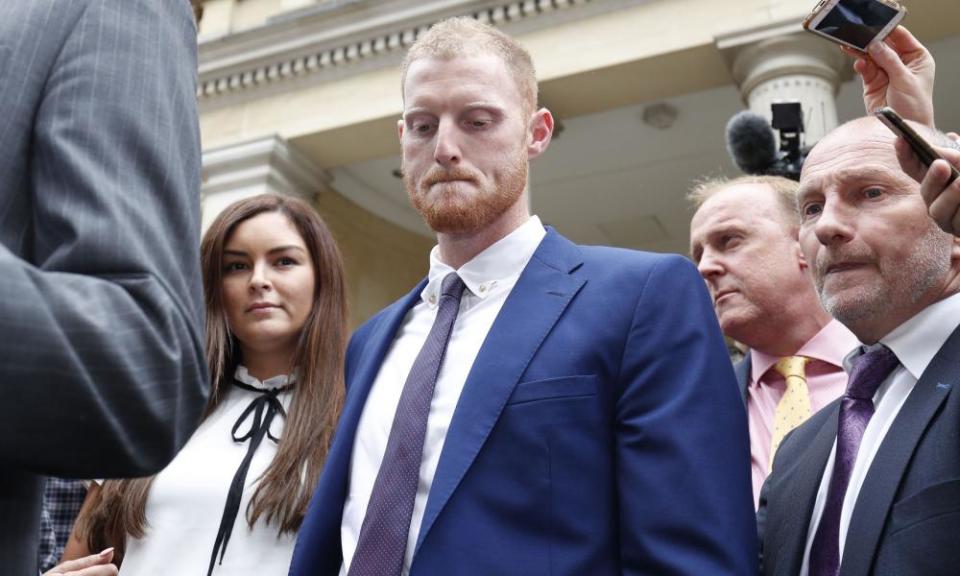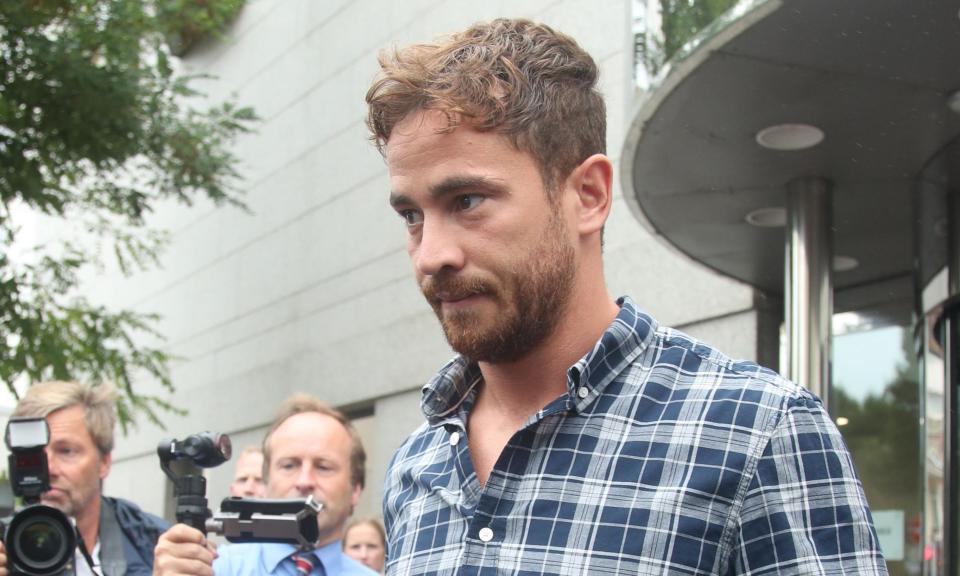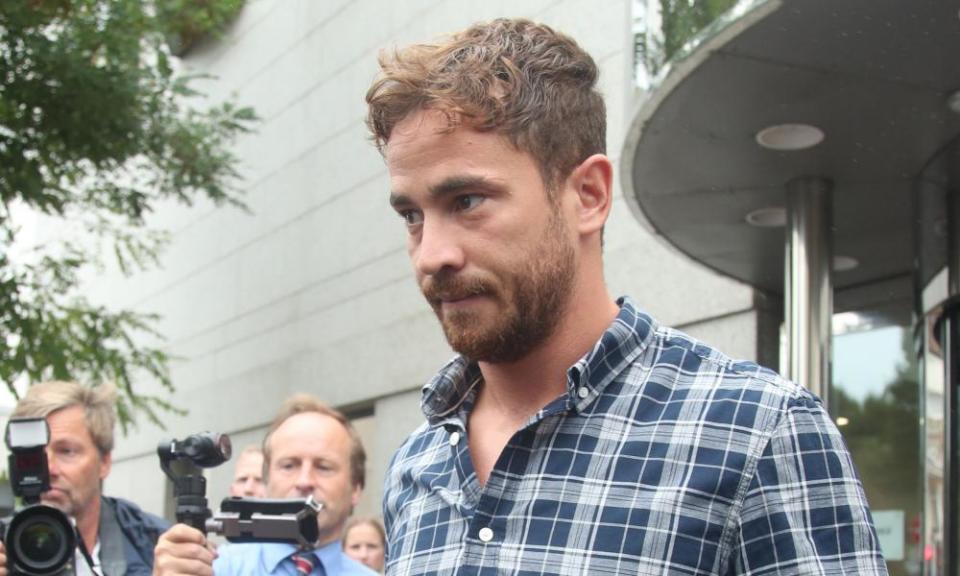What British sport can learn from America about taming its drinking culture
British sports stars involved in drink-fuelled crimes and other incidents should be treated like their American counterparts who are subjected to strict protocols to ensure they do not repeat their mistakes, an expert on sport and alcohol has said.
Carwyn Jones, professor in sports ethics at Cardiff Metropolitan University, who himself gave up alcohol after it threatened to ruin his life, said that a permissive drinking culture pervaded much of elite sport in Britain and it was time for a change.
Last week, the England rugby player Danny Cipriani admitted common assault and resisting arrest after an incident outside a nightclub in Jersey while away with his club, Gloucester, on a pre-season tour. And the England cricketer Ben Stokes was cleared of affray after a drink-fuelled brawl outside a nightclub in Bristol.
Cipriani has had previous drink-related problems. He was convicted of drink-driving in 2015 after he crashed his Mercedes into a minicab in London. Such an incident should have acted as a warning sign, suggested Jones, author of Sport and Alcohol: an Ethical Perspective.
READ MORE: West Ham haven't had time to gel, admits Wilshere
READ MORE: Mercurial quick Johnson retires from cricket
READ MORE: Mourinho: Really hard for Man Utd to finish top four
“In the States, if you are [a professional sports person] caught drink-driving, that automatically puts you in a programme for rehabilitation. A condition of that programme is that you cannot drink alcohol: it’s not that you can’t get drunk, it’s that you cannot touch an alcoholic drink. If you are caught having a beer with a barbecue at home, out of the public eye, the governing body will automatically elevate the punishment and the rehabilitation.”
American football players in the NFL must abide by its Substances of Abuse document which covers alcohol-related issues and provides routes to treatment and counselling for players who encounter problems.
“They are told ‘if you want to continue playing for us, a condition is that for the next three months you don’t drink alcohol’,” Jones said. “Then they are told: ‘If when we then release you from this condition, the second strike will be that you need to take a year off.’ The final strike is residential rehabilitation and complete suspension or the ending of the contract.”

But Jones said the UK had a different approach. “Being drunk is not considered a problem in British sport. A drink-driving conviction doesn’t make us think someone has a problem with alcohol but in the States that’s a red flag.”
Punit Shah, lecturer in psychology at the University of Bath, said there was a need to put the psychology of elite sports stars in a cultural context. “It may be that there are aspects of their psychopathology that make them great sports people but equally make them predisposed to pushing themselves to extremes in all walks of life such as drinking and getting into fights. The narrative is quite blaming of those sports people but we almost celebrate and tolerate this drinking culture, this aggression. Sports stars to an extent have become a symptom of that.”
Rehabilitation and suspension could be a way back from the abyss, Jones suggested. After failing a drugs test, the Bath rugby player Matt Stevens was banned for two years. He returned to a different club, Saracens, and went on to play for the British and Irish Lions.
But alcohol was not viewed in the same way as drugs, Jones said. “Getting drunk is to some extent sanctioned by the club. They’ll say ‘go out and enjoy yourselves but be back by 12’ or whatever, but there’s never a directive about how much you should drink – they just say ‘behave yourself when drunk’. Professional footballers go to Vegas at the end of the season to get wrecked. At the end of the Lions tour, they all get wrecked.”

Andy Powell, the Wales rugby international, who received a 15-month driving ban after he admitted taking an electric golf buggy onto the M4 in a drunken prank, confirmed to the Daily Mail that there was a deep culture of drinking on the Lions tour of 2009.
“We had a phone call about nine in the evening saying, ‘get down to the bar, now, because there’s a meeting’. We thought, ‘shit, what have we done?’ We all sat down and Warren Gatland [the manager] got up and said: ‘Right, guys, we’re knocking sailing on the head tomorrow because we’re having a good piss-up instead.’ We were steaming by the end of the night.”
Jones said he stopped drinking after too many alcohol-fuelled incidents. “Since I gave up alcohol I haven’t been arrested, I haven’t been unfaithful, I haven’t got into a fight, my career has blossomed, I got married, I’ve got a family. I wasn’t a George Best every-day drinker but I just thought I couldn’t handle things when I got drunk.”
While the example of Best confirms that alcohol abuse by sports stars is not new, today’s elite athletes have to contend with a new threat, one that might make them think again before they have a few drinks in public, suggested Ellis Cashmore, visiting professor of sociology at Aston University.
“There are always at least a dozen people on hand weaponised with smartphones to chronicle every second as well as ask for selfies with them.So any kind of provocation is going to be caught on camera. Athletes are under constant surveillance and this does make a difference to how they react.”

 Yahoo News
Yahoo News 



